

On our Actor-Musician degree programme, we’ll develop your combined talents as an actor and a musician, including the versatility to work professionally as an actor or actor-musician in a wide range of theatrical contexts.
How to apply Chat to our studentsFor drama, dance and cinematics in The Times and Sunday Times Good University Guide 2024
For drama, dance and cinematic in the Complete University Guide 2025
![]()
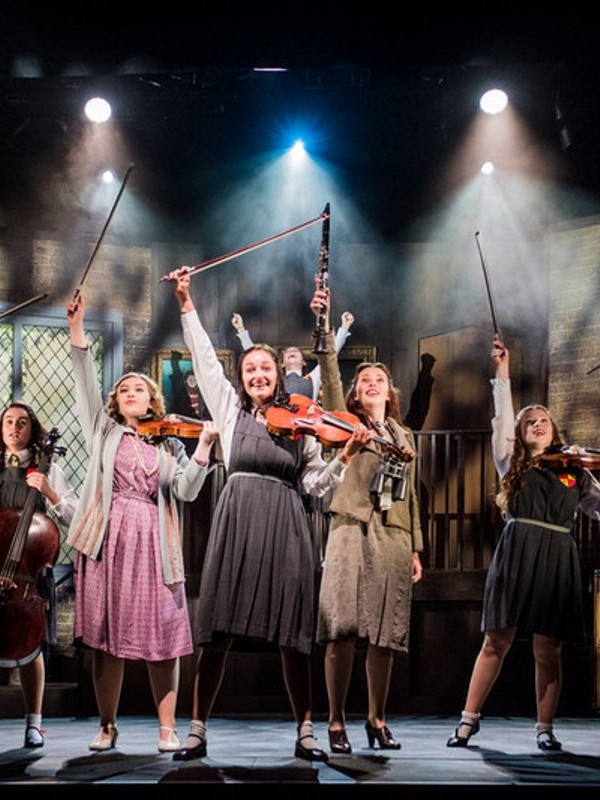
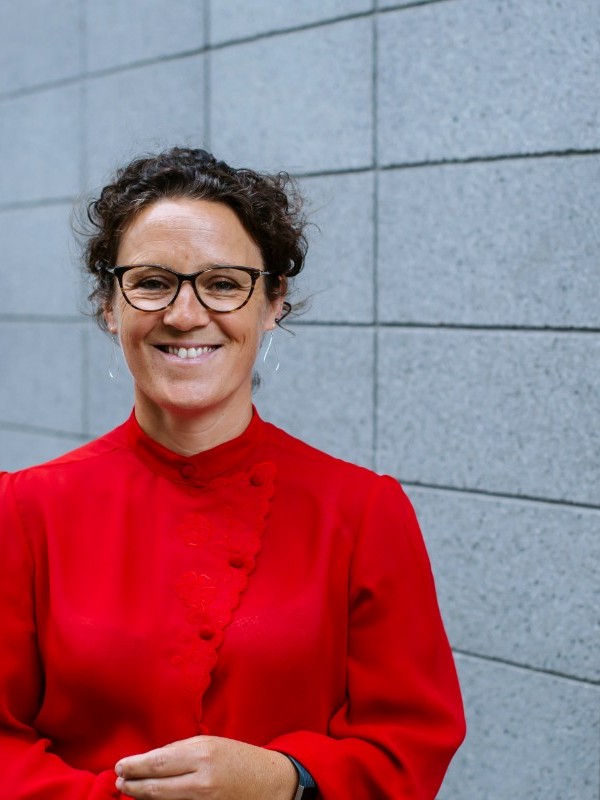
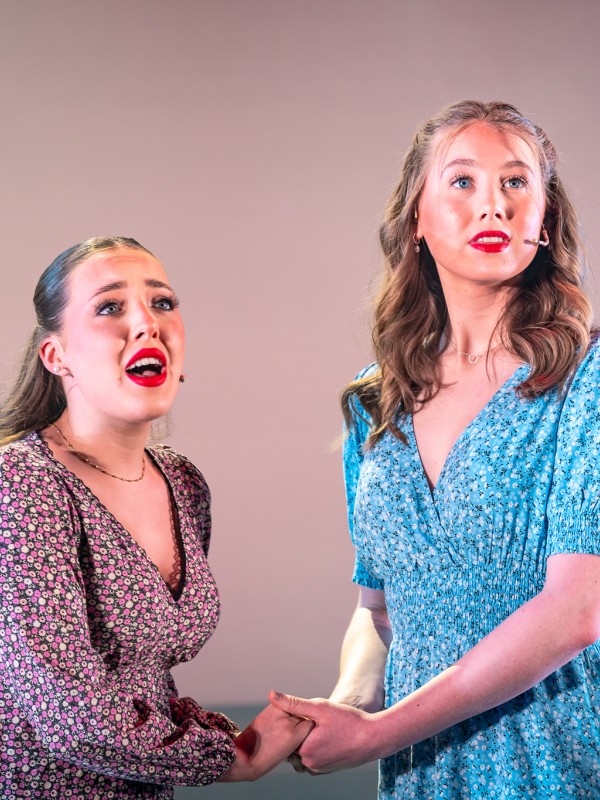
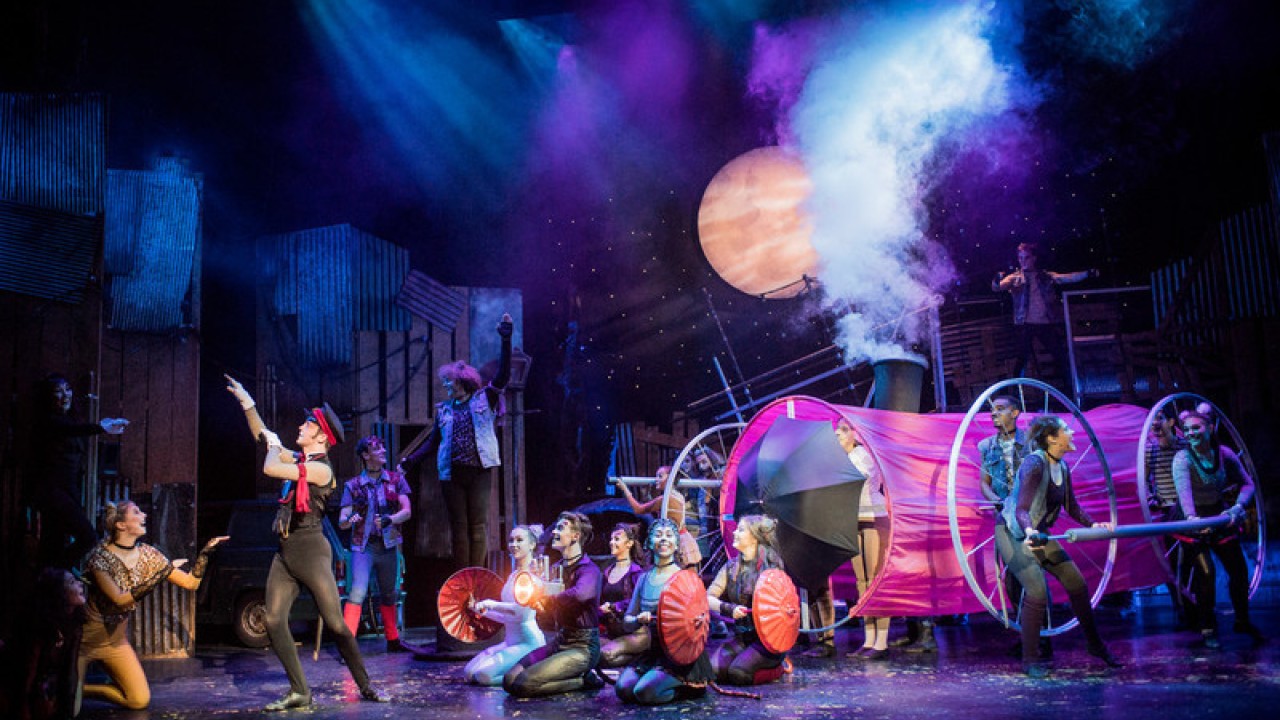
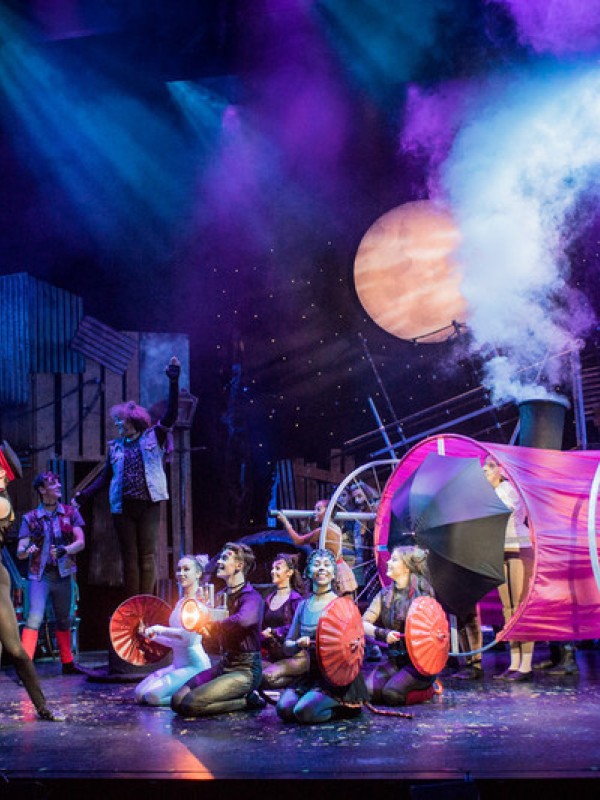
On our BA (Hons) Actor-Musician course, you’ll develop performance skills in acting, musicianship, dance, voice and singing, alongside essential critical and analytical work.
In your first year, you’ll strengthen core skills in acting, dance, singing, voice and music. With classes in all disciplines and project work on storytelling, ensemble work, modern text, screen acting and musical theatre.
In your second year, you’ll work on diverse texts, ranging from classical theatre to musical theatre, with musicianship skills integrated within all your studies. Voice, singing, music and dance skill classes continue and broaden the technical base of your training.
In your third year, you’ll work on three main projects: a play, a musical and a classical piece, alongside a showcase of your work, connecting you with casting directors and agents across the creative industries.
By developing your skills as an actor-musician, you’ll be able to take advantage of the ever-growing demand for versatile professional performers who can combine superb acting ability with a high standard of musicianship. Recent graduates have worked across a range of media including exciting projects with HBO, Netflix and also have worked in a wide range of theatre from Shakespeare through to musical theatre.
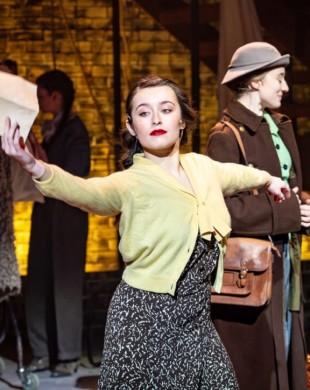
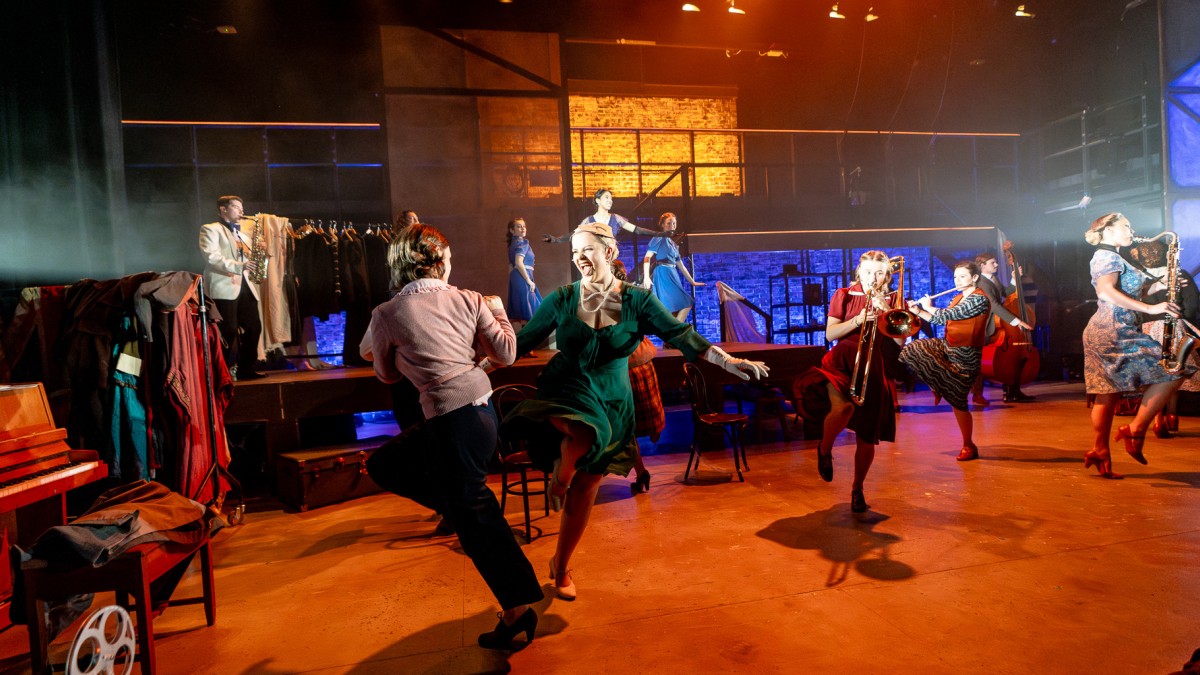
BA (Hons) - Council for Dance, Drama and Musical Theatre (CDMT)
Accredited by the Council for Dance Education and Training (CDET).
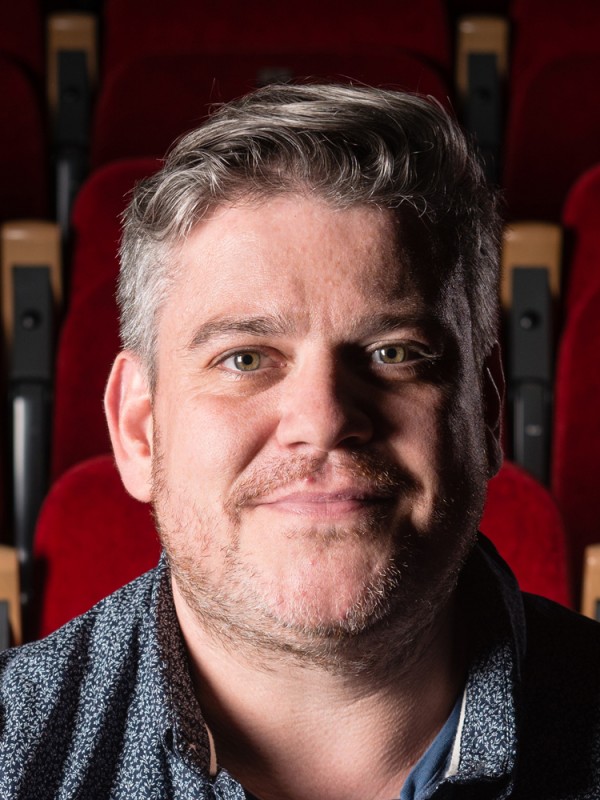
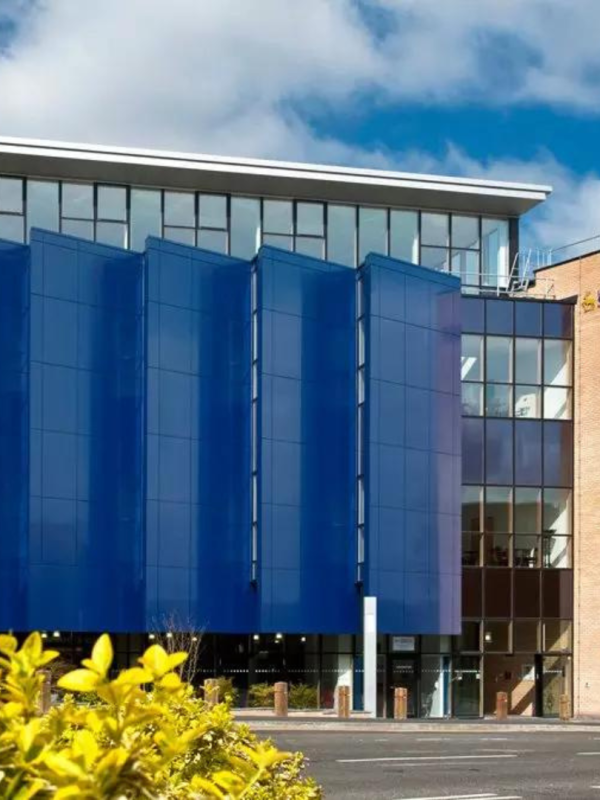
This course is taught by academic staff from the Guildford School of Acting.
See the department Course structureAt Guildford School of Acting (GSA), we deliver our provision across three teaching blocks, within the University of Surrey’s existing semester structure.
The structure of our programmes follow clear educational aims that are tailored to each programme. These are all outlined in the programme specifications which include further details such as the learning outcomes.
Modules listed are indicative, reflecting the information available at the time of publication. Modules are subject to teaching availability, student demand and/or class size caps.
The University operates a credit framework for all taught programmes based on a 15-credit tariff.
This module is the start of the study of acting for the Actor-Musician student at GSA. In weekly acting technique sessions, students develop their knowledge and practice of a range of acting techniques. Then through further weekly practical workshop sessions, students develop their approach to working as part of an ensemble through five discrete creative projects across the year covering a range of performance styles and settings. Drawing on texts and performance practices from across the world and across the centuries, students will develop their global, social, historical, and cultural awareness, share experiences and knowledge from their own backgrounds and cultures,¿and appreciate, recognise and interpret diverse perspectives while developing their spontaneity, imagination and creativity. Throughout this module, students are encouraged to maintain a reflective and research journal which will be the basis of a piece of writing at the end of the year.
In this module, students will develop their solo and ensemble instrumental skills, as well as skills in creating digital media. Weekly practical classes are designed to allow students to develop their approaches and techniques for group rehearsal and individual practice while developing technical ability in their primary and secondary instruments. Material is chosen from a wide range of musical styles and genres, and integration of singing to the musicianship is started here. Alongside this, sessions in a computer lab introduce students to the skills and approaches needed to create digital music and audio in a variety of contexts. There is a strong focus in this module on individual work and preparation in this module so that each student can develop their own approaches to personal practice which will lead to greater confidence in contributing to group music making and collaborating with others.
This module is designed to equip students with a solid grasp of fundamental techniques in delivering spoken and sung text in theatre, and developing the skills to sustain safe and consistent vocal practices in theatrical and other performance contexts. Weekly practical voice and singing classes are designed to explore the anatomy of voice and how to use the voice in differing styles and genres, and using the authentic voices as well as a range of accents and voice qualities. The sessions are designed to help students develop safe, secure and consistent technical skills to support their other work during their training, and to support students secure and sustain future employment as actor-musicians.
In this module, students are introduced to and guided in developing a strong foundation in a variety of dance and movement disciplines and styles. Weekly practical classes are designed so that students can develop safe, secure, and consistent technical skills required in both their training and future employment as actor-musicians. As they explore different dance and movement styles, students are encouraged to connect with their individual physicality and discover how to use this physical language in a wide range of theatrical storytelling contexts while being faithful to style. The dance and movement teams ensure that each class is taught from an inclusive perspective to understand the cultural, physical, social and personal differences of learners.
In this module, students continue to develop the core skills of dance, movement and voice. Weekly practical classes are designed so that students continue to strengthen their technical skills and building on consistency, safe and healthy practices, and breadth and depth of styles. While continuing to exploring their authentic physical and vocal selves, the students are encouraged to embrace new and challenging areas of the skill areas building on the fundamental skills developed at level 4.
This module is designed to further develop the student's singing and music skills whilst also exploring a broader range of skills in the creation of digital media, all with the aim of enabling the student to be empowered and prepared to approach a wide range of creative options both during their training and in employment. This module also allows the student to develop their skills and approach to personal and collaborative practice.
This module allows students to build on the development of their approach to acting as well as the integration of a broader set of skills through three major rehearsal projects. Over the course of the three teaching blocks, the students will tackle a classical text, a contemporary text, and a musical text with a director and, where appropriate, a musical director and/or a choreographer or movement director. The texts are chosen so that students may explore varied genres and styles, but also to provide useful challenges as they develop their technical, creative and collaborative skills.
In this module, students will develop the knowledge, skills, and insights to navigate the professional landscape of the creative industries, particularly in the context of actor-musicianship. Students will gain an understanding of the landscape of the creative industries, and explore the various career paths open to them as actor-musicians.
In this module, students continue to develop the skills of dance, movement, singing and voice to prepare them for their suite of public productions, and to prepare them for industry facing auditions and other professional scenarios. Weekly practical classes are designed so that students continue to strengthen their technical skills and building on consistency, safe and healthy practices, as well as breadth and depth of styles. While continuing to exploring their authentic physical and vocal selves, the students are encouraged to embrace new and challenging areas of the skill areas building on the fundamental skills developed at levels 4 and 5.
This module centres around the three public productions. Across the year, students are given the opportunity to demonstrate their integrated skills as an actor-musician in rehearsal and performance in three contrasting performance texts, as well as demonstrating effective collaboration with internal and external creative practitioners. All students perform in all three productions; casting is subject to an internal audition process mirroring, where possible, standard industry processes and format.
This module centres around a number of industry facing activities including preparation of self-tapes and audition material, and showcase. A combination of tutorials, practical sessions and seminars support the student in choosing and preparing material with a view to achieving opportunities in the creative industries, particularly in the context of actor-musicianship. The module also contains a research project which will introduce students to the business planning and pitching of a creative project or enterprise.
The course is primarily vocational with rehearsals, workshops, lectures, performances and seminars making up a very busy timetable. All years are also assigned a personal year tutor who is available to support studies and link to the wider range of study support on offer at the University of Surrey.
Group work Independent study Practical sessions Rehearsals and performancesAll modules on the BA (Hons) Actor-Musician course are made up of continuous assessment of progress in class and performances of work. Written work is assessed in the first and second year as a reflective journal of practice that runs all year and in the third year by a research project that develops high-end skills in planning, analysis, creativity and project delivery.
Contact hours can vary across our modules. Full details of the contact hours for each module are available from the University of Surrey's module catalogue. See the modules section for more information.
New students will receive their personalised timetable in Welcome Week. In later semesters, two weeks before the start of semester.
Scheduled teaching can take place on any day of the week (Monday – Friday).
Stag Hill is the University's main campus and where the majority of our courses are taught.
Career opportunitiesWe offer careers information, advice and guidance to all students whilst studying with us, which is extended to our alumni for three years after leaving the University.
Our graduates have an unrivalled employment record in all performance media. In the survey, Graduate Outcomes 2024, HESA, results show that 97 per cent of our undergraduate Guildford School of Acting students go on to employment or further study.
Our very distinguished alumni include performers such as:
Our alumni have appeared in the following productions:
UK tours and regional theatres:
We offer the best of both worlds at GSA with our world-class performance training on an exciting university campus.
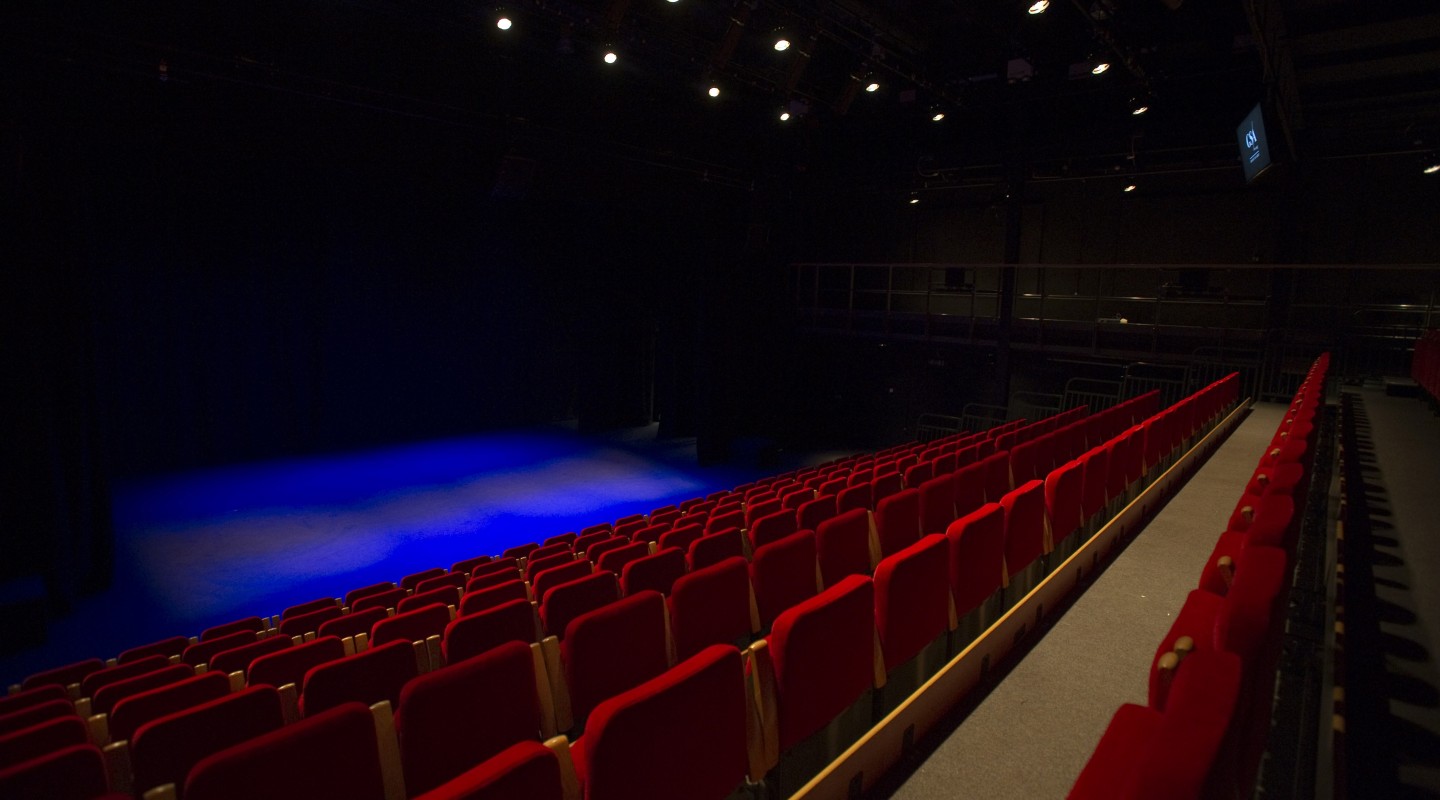
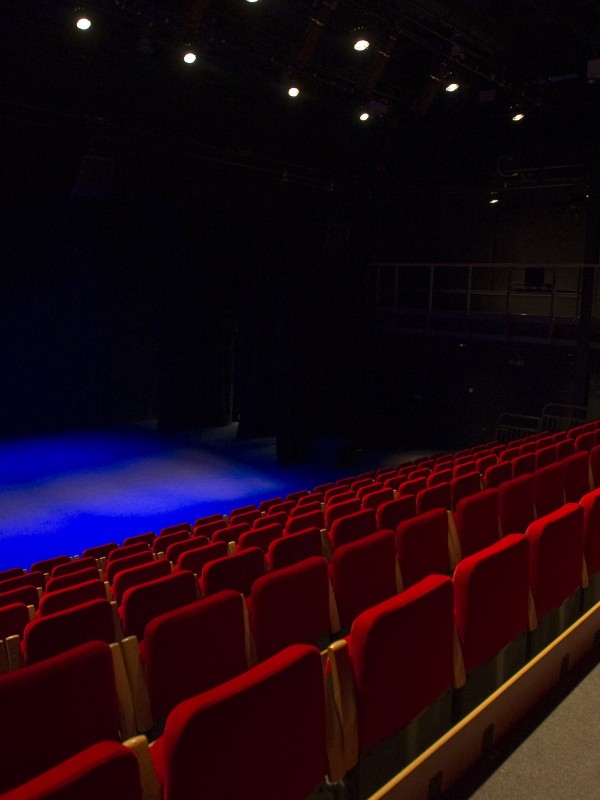
Discover more about our performance, rehearsal and production facilities.
Play videoDiscover more about our performance, rehearsal and production facilities.
Entry requirementsLearn more about the qualifications we typically accept to study this course at Surrey.
Overall: CCC.
Please note: A-level General Studies and A-level Critical Thinking are not accepted. Applicants taking an A-level science subject with the Science Practical Endorsement are expected to pass the practical element.
GCSE or equivalent: English Language at Grade C(4) and Mathematics at Grade C (4).
Candidates who can demonstrate exceptional talent, and can satisfy the panel of their ability to successfully complete the course may also be considered.
Overall: MMM.
GCSE or equivalent: English Language at Grade C(4) and Mathematics at Grade C (4).
Candidates who can demonstrate exceptional talent, and can satisfy the panel of their ability to successfully complete the course may also be considered.
Overall: 29.
GCSE or equivalent: English A HL4/SL4 or English B HL5/SL6 and Maths (either course) HL4/SL4.
Candidates who can demonstrate exceptional talent, and can satisfy the panel of their ability to successfully complete the course may also be considered.
Overall: 68%.
GCSE or equivalent: Maths 6 and either English Language (1/2) 6 or English Language (3)7.
Candidates who can demonstrate exceptional talent, and can satisfy the panel of their ability to successfully complete the course may also be considered.
Overall: QAA recognised Access to Higher Education Diploma with 45 Level 3 credits overall including 21 at Distinction, 3 at Merit and 21 at Pass.
GCSE or equivalent: English Language and Mathematics at Grade C(4).
Candidates who can demonstrate exceptional talent, and can satisfy the panel of their ability to successfully complete the course may also be considered.
Overall: BBBCC.
GCSE or equivalent: English Language - Scottish National 5 - C Maths - Scottish National 5 - C.
Candidates who can demonstrate exceptional talent, and can satisfy the panel of their ability to successfully complete the course may also be considered.
Overall: Pass overall with CCC from a combination of the Advanced Skills Challenge Certificate and two A-levels.
Please note: A-level General Studies and A-level Critical Thinking are not accepted. Applicants taking an A-level science subject with the Science Practical Endorsement are Expected to pass the practical element.
GCSE or equivalent: English Language and Mathematics – Numeracy as part of the Welsh Baccalaureate. Please check the A-level drop down for the required GCSE levels.
Candidates who can demonstrate exceptional talent, and can satisfy the panel of their ability to successfully complete the course may also be considered.
IELTS Academic: 6.5 overall with 6.0 in Writing and 5.5 in each other element.
If you do not currently meet the level required for your programme, we offer intensive pre-sessional English language courses, designed to take you to the level of English ability and skill required for your studies here.
We make offers in terms of grades after a successful audition.
If you can demonstrate exceptional talent, and can satisfy the panel of your ability to successfully complete the course, you may be considered for a place irrespective of your academic background.
A non-refundable audition fee is usually charged. We are unable to provide audition feedback. Visit the GSA website for further information.
We recognise that many students enter their higher education course with valuable knowledge and skills developed through a range of professional, vocational and community contexts.
If this applies to you, the recognition of prior learning (RPL) process may allow you to join a course without the formal entry requirements or enter your course at a point appropriate to your previous learning and experience.
There are restrictions on RPL for some courses and fees may be payable for certain claims. Please see the code of practice for recognition of prior learning and prior credit: taught programmes (PDF) for further information.
Did you know eligible students receive support through their application to Surrey, which could include a grade reduction on offer?
About contextual offers Fees and fundingExplore UKCISA’s website for more information if you are unsure whether you are a UK or overseas student. View the list of fees for all undergraduate courses.
The annual tuition fees for courses starting in September 2025
Fees will increase for each year of your programme as detailed in our tuition fee increases disclaimer
The exact date(s) will be on invoices. Students on part-time programmes where fees are paid on a modular basis, cannot pay fees by instalment.
If you are studying on a programme which contains a Professional Training placement year there will be a reduced fee for the academic year in which you undertake your placement. This is normally confirmed 12 to 18 months in advance, or once Government policy is determined.
There are associated costs with this course:
Grand total: £425 – £700 approximately.
UK-based activity: £150 – theatre trips (you should aim to see some live theatre and attend the cinema throughout the course).
In the final year, you may wish to apply for Spotlight (including graduates casting list) and Equity membership – £150 approximately.
You will be offered a week’s training in Stage Combat leading to Actors Combat Theatrical Training (ACTT) Standard-level exam.
Opportunities for advanced training may also be available to students. These are extra-curricular courses so additional charges apply.
All students at GSA are encouraged to attend productions of their fellow students’ work to enrich their learning experience and give opportunities for critical analysis. These are public events for which students will be charged a reduced ticket price of £5.
Some productions will be free to attend and there are opportunities for first years to volunteer in front of house, enabling those students to watch that production free of charge. Within an academic year a student might expect to attend around 25 productions.
You may also wish to join the GSA Student Society – estimated £5 per annum.